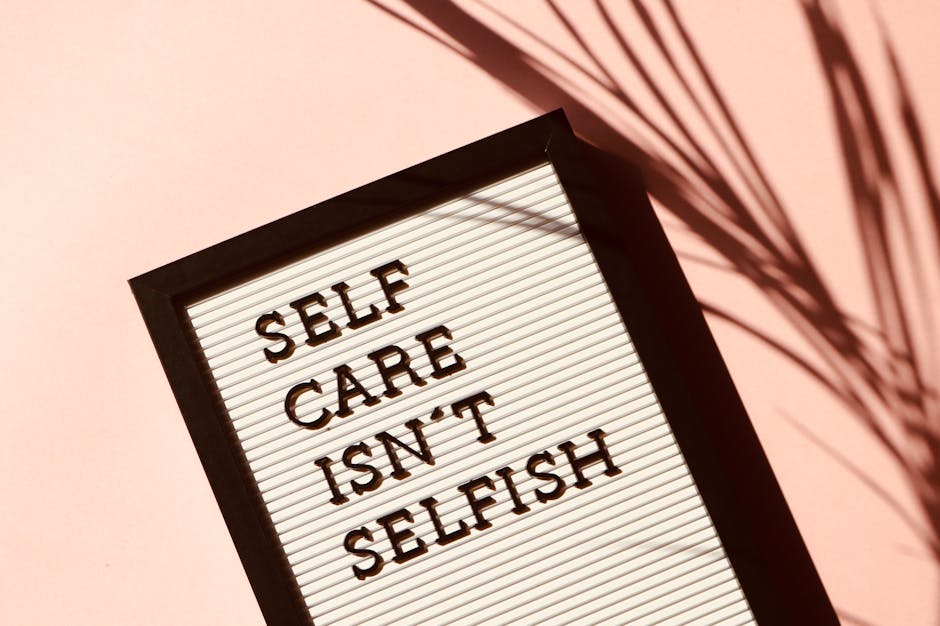Micro-Moments of Mindfulness: Transform Your Mental Health Today
Life can often feel overwhelming, like you’re juggling too many balls in the air at once. Between work, family, and personal responsibilities, taking time for yourself can seem impossible. However, what if I told you that just five minutes of mindful practice throughout your day could drastically alter your mental health for the better? In this article, we will explore the concept of "Micro-Moments of Mindfulness" and share easily adaptable 5-minute practices that you can start today to revolutionize your mental well-being.
The Mental Health Crisis: A Call for Mindfulness

It's no secret that mental health issues are affecting millions globally. According to the World Health Organization, depression is one of the leading causes of disability, impacting over 264 million people worldwide. As stressors rise, traditional methods of managing mental health—like therapy or medication—though important, can feel overwhelming in themselves. This is where mindfulness enters the picture.
Mindfulness teaches us to focus on the present moment, which can provide immediate relief from anxiety and depressive thoughts. “Only a few minutes a day can make an impressive difference in your mental clarity and emotional resilience,” says Dr. Marc Neurohr, a psychologist specializing in mindfulness. Mindfulness isn't just a fad; it’s a profound tool for managing mental health effectively.
What Are Micro-Moments of Mindfulness?

Micro-Moments of Mindfulness are short intervals of intentional focus on the present, allowing you to reconnect with your mind and body, no matter how busy your day may be. Rather than a 30-minute meditation session that can feel daunting, these rapid-fire mindfulness practices can easily fit into your schedule.
Think of it as taking a tiny vacation for your mind—whether you're waiting for a meeting to start, cooking dinner, or standing in a queue. By incorporating these short bursts of mindfulness into your daily routine, you can enhance your mental agility and emotional health.
The Benefits of Mindfulness

Let’s dive deeper into the benefits that come from embracing Mindfulness. Numerous studies have shown its positive effects on various aspects of mental well-being:
- Reduced Stress: Engaging in mindfulness activities can lower levels of cortisol, the body’s stress hormone.
- Improved Focus: Mindfulness encourages mental clarity, making it easier to concentrate on tasks.
- Enhanced Emotional Regulation: It helps in identifying and managing emotional reactions effectively.
- Greater Self-Awareness: Regular practice encourages self-reflection, leading to increased insight into personal thoughts and behaviors.
For more on emotional wellness, don’t forget to check out our post on napping and mental clarity.
5-Minute Practices for Micro-Moments of Mindfulness

Below are some practical 5-minute mindfulness activities designed to boost your mental health. These micro-moments can be seamlessly integrated into your daily life.
1. Mindful Breathing: Your Quick Reset

Find a quiet spot—or even while you're sitting at your desk—and take a minute to focus solely on your breath. Breathe in deeply through your nose for a count of four, hold for a count of four, and exhale through your mouth for a count of six. This exercise helps regulate your heartbeat and calms your mind.
Pro Tip:

You can enhance this practice by playing calming nature sounds or binaural beats in the background, which studies show can deepen the experience of mindfulness. For more techniques, explore the power of sound healing with natural soundscapes.
2. Gratitude Journaling: Count Your Blessings

Take five minutes each day to jot down three things you are grateful for. These can be as simple as a warm cup of coffee or a smile from a stranger. Gratitude journaling shifts your focus from what’s wrong in your life to what’s good.
Why it Works:

Research indicates that gratitude can significantly increase levels of happiness and improve overall emotional well-being. If you need more context, dive into our article on using nostalgia for healing.
3. Body Scan: Tune Into Your Physical Self

A quick body scan is a great way to reconnect with your physical presence. Stand or sit comfortably and physically check in with each part of your body, from your toes to your head. Notice any areas of tension, release them consciously, and breathe specifically into those spots.
The Science:

This mindfulness practice can be particularly helpful for stress relief and improving body awareness.
4. Nature Walk: Engage Your Senses

Take a 5-minute walk outside and immerse yourself in nature. Focus on what you see, hear, and smell. Notice the sensations of the ground beneath your feet or the wind against your skin. Engaging your senses can make you feel grounded and calm.
How This Impacts Well-Being:

Studies show that nature exposure is linked to decreased anxiety and improved mood. Check out our article on urban foraging and nature explorations for ideas to enhance your experience.
5. Meditation with a Twist: Five-Minute Mindfulness Audio

Find a meditation app or a YouTube video that offers 5-minute guided meditations. Sometimes having someone lead you through the process can deepen the experience.
Why It’s Effective:

Research published in the Harvard Business Review found that meditative practices enhance focus and creativity while reducing stress.
Tips for Incorporating Mindfulness into Your Daily Routine

- Start Small: If you're new to mindfulness, begin with just one practice a day, then gradually add more as you feel comfortable.
- Consistency is Key: Like any habit, the more regularly you practice, the more significant the benefits. Try to set aside time daily for at least one micro-moment.
- Reminders: Use phone alarms or sticky notes to remind yourself to pause and take those necessary moments throughout your day.
Final Thoughts: Your Journey to Mindfulness

Micro-Moments of Mindfulness don’t require hours of your day; they can be seamlessly woven into your existing schedule. By allocating just five minutes for these mindful practices, you can cultivate a more centered presence that fosters better mental health.
As with any new skill, the key is practice and patience. Take this new perspective and embrace the power of the present—transform your mental health with small but impactful changes today.
Consider continuing your exploration of mental well-being by exploring our posts such as the power of micro-moments and culinary traditions that boost mental health for an enriching and comprehensive take on wellness.


